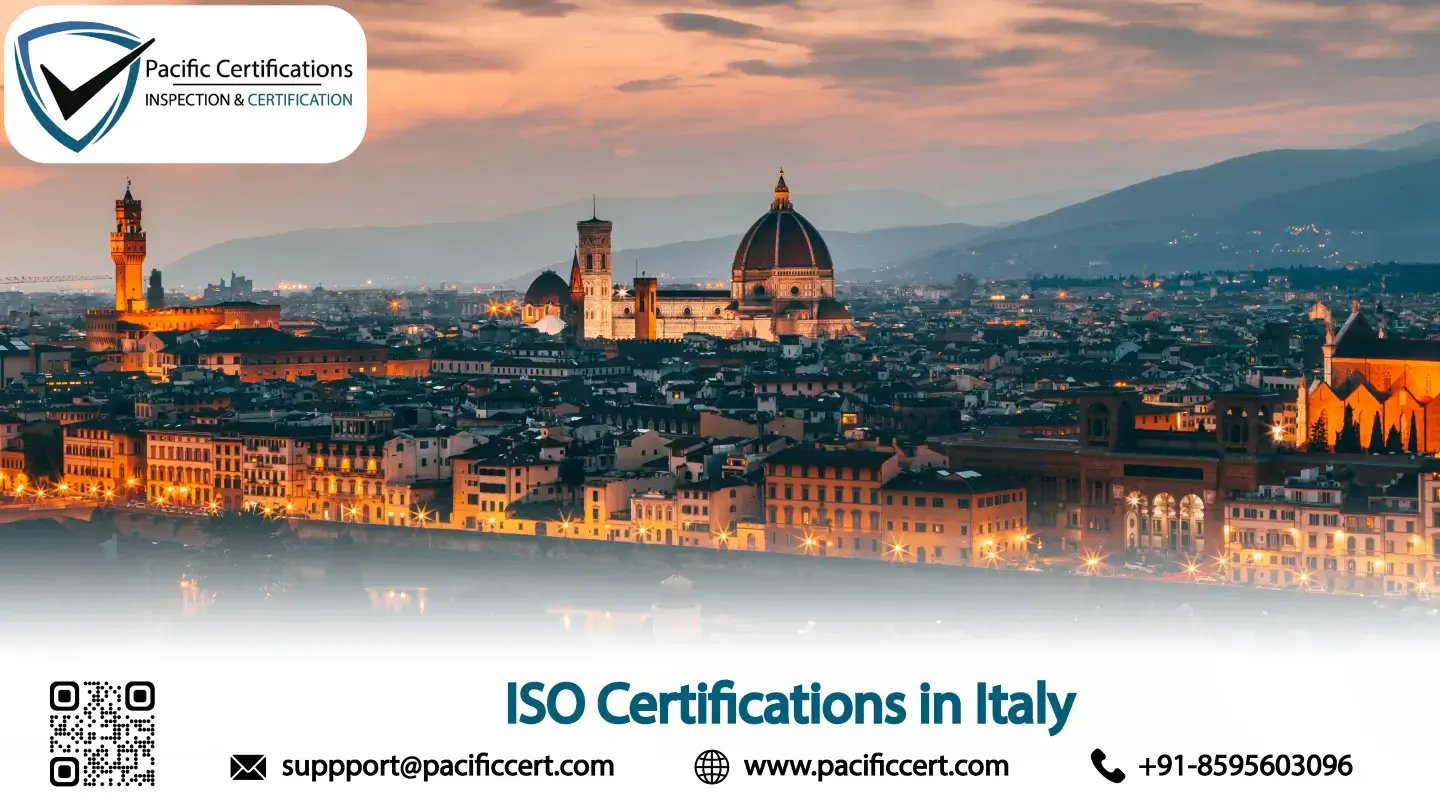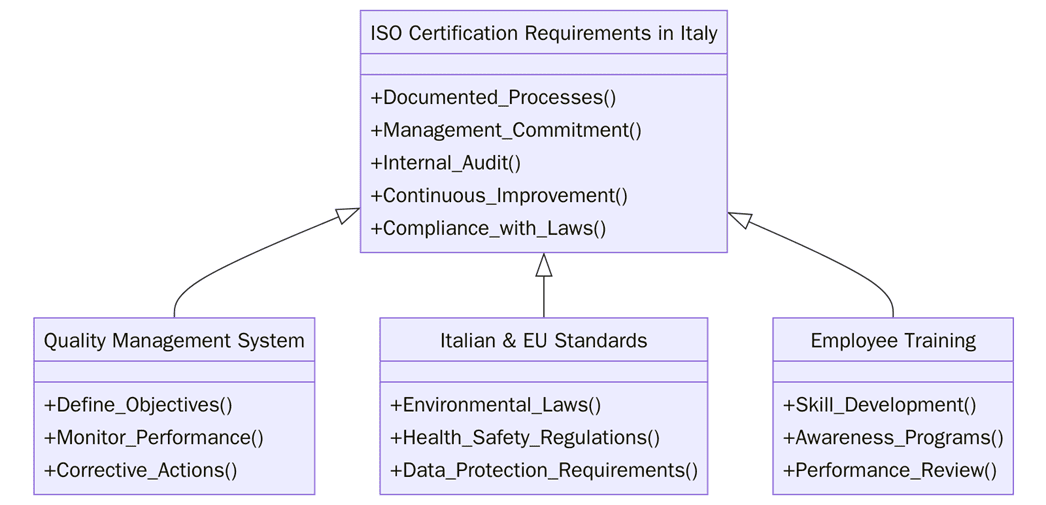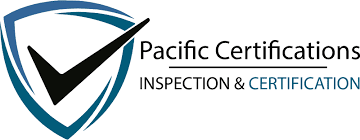ISO Certifications in Italy, Popular Standards, Requirements and Benefits

Introduction
Italy’s economy spans precision machinery and automotive, aerospace, chemicals and pharmaceuticals, food and beverage (including PDO/PGI), fashion and luxury manufacturing, construction and infrastructure, logistics through ports such as Genoa and Trieste, tourism and hospitality and a strong SaaS/cloud and fintech base across Milan, Turin, Bologna, Rome and Naples. By adopting standards such as ISO 9001 (Quality Management), ISO 14001 (Environmental Management) and ISO 45001 (Occupational Health & Safety), companies in Italy can improve efficiency, reduce waste and earn trust from partners and regulators. For expanding areas like ICT, construction and agrifood, ISO certification has become a practical step toward attracting international clients and competing confidently in global markets. These programs provide verifiable assurance on quality, safety, environment, information security and continuity that buyers and lenders accept across the EU and worldwide.
Contact Pacific Certifications to register your organization for ISO certification in Italy, receive a formal application pack and a proposed Stage 1/Stage 2 audit calendar under recognized accreditation.
Economic Context & Industry Overview
Italian industry integrates advanced engineering with mid-sized specialist suppliers (“distretti industriali”). Export growth is driven by machinery, vehicles and components, pharmaceuticals, chemicals, high-end apparel and premium food chains, while infrastructure and energy projects continue across regions. Public buyers, global OEMs and retailers increasingly expect auditable management systems as a baseline for vendor approval, tendering and due diligence.
Why ISO certification matters in Italy?
Tier-one buyers and authorities look for evidence-based systems with clear records. ISO standards give a shared assurance language that shortens vendor approval, stabilizes yield on precision lines, improves site safety and environmental performance, protects data and uptime for digital platforms and demonstrates HACCP-based traceability for food brands. Certification also organizes the evidence, policies, KPIs, competence, risk files and corrective actions so customer, regulator and lender reviews move quickly and predictably.
Popular ISO Standards in Italy
Certification Process in Italy
Preparation starts with an honest view of how work runs today and how evidence is captured. The aim is to make your system auditable without reinventing daily routines. Below are the steps to consider:
List products services sites headcount and high-risk processes for clear scope
Map processes end to end to show handoffs records and responsibilities
Set policy and measurable objectives linked to customer and legal needs
Assemble evidence packs for production maintenance labs IT and logistics
Train process owners keep competence matrices and attendance records current
Calibrate instruments verify methods and file certificates for quick checks
Run internal audits that sample high-risk tasks and supplier interfaces
Hold management review with KPIs audit results complaints legal updates and actions
Schedule Stage 1 for readiness and Stage 2 for implementation verification align multi-site sampling to risk
Blend on-site checks with remote interviews where suitable to reduce travel time
Keep permits licenses and regulatory reports organized for quick verification
What are the requirements of ISO Certifications in Italy?
Build the system around how work actually runs on lines, sites, kitchens/cellars, clinics, warehouses and data rooms and align with Italian/EU norms so evidence stands up in audits, inspections and buyer reviews; below are the key requirements:

A scope that matches products/services, processes and sites (single or multi-site).
A documented management system with controlled procedures and records that reflect practice.
Risk assessment with operational controls for real hazards (HACCP, site safety, environmental aspects, privacy/security, energy) and change management.
Competence matrices and training records for process owners and high-risk roles.
Internal audits with reports, nonconformities, root-cause actions and verified closures.
Management review with inputs (KPIs, audits, incidents/complaints, legal updates) and tracked decisions.
Standard-specific artefacts: HACCP & CCP logs (ISO 22000), Statement of Applicability & risk files (ISO/IEC 27001), HIRA & PTW (ISO 45001), aspect-impact registers & objectives (ISO 14001), energy review & EnPIs (ISO 50001).
Legal/other requirements register with permits, inspections, calibrations, monitoring data and supplier compliance evidence.
Tip:Map controls to GDPR and local privacy guidance, environmental permits/ARPA monitoring, Legislative Decree 81/2008 obligations for OH&S and food safety/traceability rules.
What are the benefits of ISO Certifications in Italy?
Use certification to win tenders and vendor approvals, reassure lenders/investors and stabilise operations across shifts and sites; below are the key benefits:

Faster prequalification in buyer portals and public procurement
Fewer incidents, defects and unplanned stoppages on lines and projects
Clear roles and competence development for critical operations and maintenance
Traceable data for warranty, claims, ESG and due diligence
Stronger supplier oversight through audits, KPIs and corrective actions
Measurable gains in energy use, waste, emissions, uptime and yield
Stronger brand signals in EU and global markets
Market Trends
Italy’s revised PNIEC targets call for ~39–40% renewables in final energy by 2030 (and over 63% in electricity), aligned to the EU’s higher 2030 ambition. Regions are being tasked to pre-designate “suitable areas” to accelerate permitting toward an additional ~80 GW of renewables by 2030. As new capacity connects, large users and utilities are formalizing ISO 50001 programs (for energy performance) alongside ISO 22301 (continuity) and ISO 14001/45001 (EHS), to manage variability, compliance and incident readiness. (source: Rinnovabili+2Energy+2)
Italy’s push to rebuild strategic chip capacity, anchored by the STMicroelectronics silicon-carbide “mega-fab” in Catania (≈€5bn total, ≈€2bn state support, ramping 2026–2033) raises audit expectations across materials, equipment, and precision logistics. Tier suppliers will increasingly face integrated audits against ISO 9001/14001/45001/50001 and ISO 28000 (supply-chain security) to meet OEM and export scrutiny through the late-2020s. (source: European Commission+2ST News+)
Challenges Faced in Italy
Operational, regulatory and evidence-readiness issues related to getting certified can cause delays—budget constraints and staffing gaps, incomplete or outdated documentation and records, weak internal audits and corrective actions, supplier-control gaps, multi-site sampling and travel logistics, calibration and permit backlogs and data/privacy mapping for ICT; below are the key challenges:
Budgeting for certification time and ongoing system maintenance
Perception of ISO as “compliance” rather than a performance tool in some teams
Shortage of seasoned internal auditors and process owners outside major hubs
Stalling on document control, internal audits and corrective-action discipline
Multi-site and supplier sampling (tiered chains) complicating logistics and evidence quality
What is the cost of certification in Italy?
Costs are confirmed after scoping and reflect headcount and risk, the number and spread of sites (e.g., Lombardy, Piedmont, Emilia-Romagna, Veneto, Lazio), your standards set (single vs. integrated such as 9001+14001+45001), sector sampling depth (precision lines and cleanrooms vs. offices) and travel/logistics. Your proposal itemizes Stage 1, Stage 2 and surveillance days, clarifies on-site versus remote activities and highlights any multi-site efficiencies so budgets remain transparent and predictable.
For personalized quote, contact [email protected]
What is the timeline for certification in Italy?
Timelines depend on document/record readiness, the speed of closing any Stage-1 findings, whether you are single- or multi-site and whether the program is single-standard or integrated. Coordinating audit windows around shutdowns, production ramps, harvests, or release cycles—and auditor travel to regional sites—also affects duration. A well-prepared single site can progress from application to decision within one audit cycle; multi-site or integrated programs typically require additional planning and sampling time.
How Pacific Certifications can help?
Pacific Certifications audits and certifies ISO management systems for machinery and automotive, aerospace and metals, chemicals and pharma, food and beverage, logistics and ports, construction, healthcare and SaaS/cloud across Italy. We work under recognized accreditation with transparent pricing and an experienced local team that understands site realities and buyer expectations. Our certificates are accepted by procurement portals and international customers and we are recognized by ABIS.
Request your ISO audit plan and fee estimate. We will help you map Stage 1 and Stage 2 timelines and evidence requirements for your organization. Contact us at [email protected] or visit www.pacificcert.com.
Accredited Training Programs
Pacific Certifications provides accredited training programs in Italy for ISO 9001, ISO 14001, ISO 45001, ISO 22000/FSSC 22000, ISO/IEC 27001, ISO 22301 and ISO/IEC 20000-1.
Lead Auditor Training: for professionals auditing these systems across Italian industries.
Lead Implementer Training: for personnel establishing or improving systems in plants, sites, kitchens/cellars, hospitals, utilities and ICT platforms.
These programs are conducted online or onsite, depending on client needs under ISO/IEC 17024 for personnel certification.
To begin the process or request a quotation, contact us at [email protected] or visit www.pacificcert.com.
Our team will guide you through the audit and certification process and planning stages specific to your operations in Italy.
Ready to get ISO certified?
Contact Pacific Certifications to begin your certification journey today!
Suggested Certifications –
Read more: Pacific Blogs

